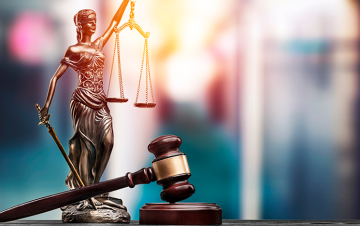Lawyer with 15 years of legal experience, specialization: family and civil law, inheritance, contract law, criminal cases, administrative cases, cases involving foreigners, migration law
Civil litigation in Ukraine plays a key role in resolving civil disputes between individuals and protecting their rights and legitimate interests. It provides mechanisms for resolving a variety of civil matters, from contractual relations to property disputes and issues relating to the rights and obligations of individuals.
Stages of civil litigation:
Filing a claim or statement: Civil proceedings begin with the filing of a claim or application with a court of competent jurisdiction. In a lawsuit, a party expresses its claims and substantiates them, indicating the grounds and circumstances of the case.
Preparatory stage: After the lawsuit is filed, the case is submitted to the court, where the preparatory stage is carried out. At this stage, the parties have the opportunity to file responses, present evidence and documents, and agree on issues related to the trial.
Consideration of the case in court: On a certain day, the case is heard in court, where the parties present their evidence and arguments. The court carefully examines all the circumstances of the case and makes an informed decision.
Announcement of the court's decision: After the case is heard, the court announces its decision, which determines the resolution of the dispute and the reasons for the decision.
Appellate and cassation instances: In case of disagreement with the court's decision, the parties have the right to appeal to higher instances - the court of appeal and the court of cassation. At these stages, the decision may be reviewed if new evidence or procedural violations are found.
The enforcement process: Once a judgement is rendered, the parties have the right to enforce it. In case of non-enforcement of the judgement or its unlawful enforcement, the enforcement procedure may be applied. A lawyer can provide legal assistance to his client in the enforcement process, helping to collect the necessary documents and protecting rights during the execution of a court decision.
Opportunities for the parties: Civil litigation provides the parties with the opportunity to present their arguments and evidence before the court, defend their rights and interests, and appeal the court's decision in case of disagreement. The role of an attorney-at-law is to ensure that the interests of his or her client are protected to the fullest extent possible at every stage of civil litigation.
The role of an advocate in civil litigation:
In civil litigation, a lawyer plays an important role in protecting the rights and interests of his or her clients. He or she provides legal advice on issues related to legal status, represents the client's interests at all stages of the trial, assists in the preparation of documents and evidence, and negotiates with other parties to the case. An attorney-at-law has in-depth knowledge of procedural law and case law, which allows him to effectively protect the interests of his clients in civil cases. Lawyer carries out: protection of dignity, lifting of arrest, analysis, representation and other.
Civil litigation in Ukraine provides the parties with the opportunity to resolve civil disputes through a fair and objective court hearing, taking into account all legal aspects and evidence provided by the parties. The role of an attorney-at-law is to provide professional legal support and protect the rights of his or her client at every stage of the process.
































